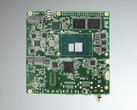Gordon Earle Moore's (1929-2023) PhD from the California Institute of Technology may be in chemistry; however, he envisioned a world in which "wonders as home computers - or at least terminals connected to a central computer - automatic controls for automobiles, and personal portable communications equipment" became commonplace, and set out to make it a reality.
To that end, the San Francisco native is credited with invaluable contributions to early transistor technology, through research and work experience at institutions such as Johns Hopkins Applied Physics Laboratory and Shockley Semiconductor, prior to founding Intel with Robert Noyce in 1968.
Building on prior experience at Fairchild Semiconductor, Moore served in leading roles at their new company, eventually retiring from its CEO and chairman emeritus roles in 1987 and 2006 respectively. Accordingly, Moore is linked to the company's meteoric success in those days - all fueled by that widely-quoted tenet (or prediction, rather) of transistor numbers per chip doubling roughly every 2 years, published by the scientist in 1957.
The semiconductor world may or may not be ready to move beyond Moore's Law; however, the industry is unlikely to forget his impact any time soon. Intel also now remembers its "visionary" as a philanthropist, having, for example, established the Gordon and Betty Moore Foundation with his wife, who survives him with their 2 sons and 4 grandchildren, in his later years.
Hopefully, Intel will now honor Moore by continuing to put "more and more stuff on a chip...to make all electronics cheaper" in the future.
On that note, the Core i7-12700KF is 15% off on Amazon today.





















